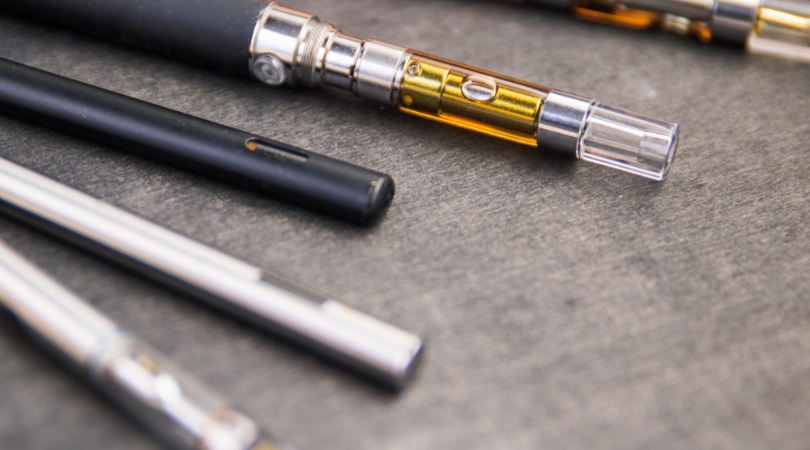
When it comes to cannabinoids, THC has long dominated the conversation due to its widespread presence in cannabis and its potent psychoactive effects. However, a new contender has emerged on the scene—HHC (hexahydrocannabinol). Though similar in certain respects, HHC and THC have distinctive characteristics that influence their potency, efficacy, and therapeutic uses.
, we will provide an in-depth comparison of HHC and THC, explore the differences in their physiological effects, and discuss their various applications within the therapeutic landscape.
What is HHC?
HHC is a hydrogenated form of THC. It occurs naturally in the cannabis plant but in tiny quantities. Recent advancements in chemistry have allowed for HHC to be manufactured in larger quantities through a process called hydrogenation – the same process used to make margarine from vegetable oil. This process increases the stability and shelf-life of the compound without significantly altering its effects.
What is THC?
THC, or delta-9-tetrahydrocannabinol, is the most well-known cannabinoid found in the cannabis plant. It is renowned for its psychoactive properties, which is the “high” most commonly associated with marijuana consumption. THC interacts with the body’s endocannabinoid system and affects functions such as mood, memory, and pain perception.
Comparing the Potency and Efficacy of HHC and THC
Potency
The potency of a cannabinoid refers to the strength of its effects on the body. While THC is recognized for its powerful psychoactive effects, HHC tends to offer a milder experience. Many users report that HHC produces a high similar to THC, but without the intensity and anxiety some people feel with THC.
HHC is considered to be more stable than THC due to its resistance to oxidation and UV light. This stability might mean that its psychoactive effects remain consistent even after extended storage—a potential advantage for both manufacturers and consumers.
Efficacy
The efficacy of a cannabinoid is measured by its ability to produce a desired or intended result. Both HHC and THC are effective in their therapeutic applications, including pain relief, appetite stimulation, and the reduction of nausea.
However, due to its less intense psychoactive profile, HHC might be preferable for individuals who seek the potential benefits of cannabinoids without a strong “high.” This makes HHC an attractive compound for medical patients who want to maintain a clear head while treating their symptoms.
Therapeutic Applications
Cannabinoids have been studied for their potential role in treating a wide array of medical conditions. Here’s a brief overview of how HHC and THC can be applied therapeutically:
Pain Relief
Both HHC and THC have analgesic properties, making them potent pain relievers. They can be helpful in conditions like neuropathy, arthritis, multiple sclerosis, and some chronic pain syndromes.
Anti-Inflammatory
THC has demonstrated significant anti-inflammatory properties in various studies, a trait HHC is believed to share. This can be particularly beneficial in inflammatory conditions like Crohn’s disease and rheumatoid arthritis.
Anti-Nausea
THC has been effectively used to reduce nausea and vomiting, especially in cancer patients undergoing chemotherapy. Though there’s less research on HHC, anecdotal reports suggest it might offer similar anti-emetic benefits.
Appetite Stimulation
THC is known to stimulate appetite, which can aid people suffering from cachexia or anorexia. HHC’s impact on appetite has yet to be extensively studied, but it could theoretically have comparable effects due to its relationship with THC.
Anxiety and Insomnia
Low doses of THC can alleviate anxiety and aid with sleep. Since HHC induces a milder and potentially more relaxing high, it could be useful for managing anxiety and insomnia in individuals who are sensitive to the more intense effects of THC.
Legal Status
It’s crucial to mention that the legal status of these compounds varies. While THC remains illegal under federal law in the U.S., HHC exists in a legal gray area due to its synthetic nature and the fact that it’s not specifically listed in most controlled substance acts. Nonetheless, consumers should always check local laws and regulations before purchasing or consuming any cannabinoid products.
Conclusion
Understanding the nuances between HHC vs. THC is essential for consumers and medical patients alike. While both have demonstrated therapeutic potential, their differences in potency, efficacy, and psychoactive effects can cater to a wide range of preferences and needs.


More Stories
Designing Comfort: Essential Equipment for Modern Spa Clinics
Minimally Invasive Spine Surgery in Tampa, FL promoting faster recovery and reduced downtime
Dr. Rodolfo Giraldi Improving Health Management Through Comprehensive Internal Medicine